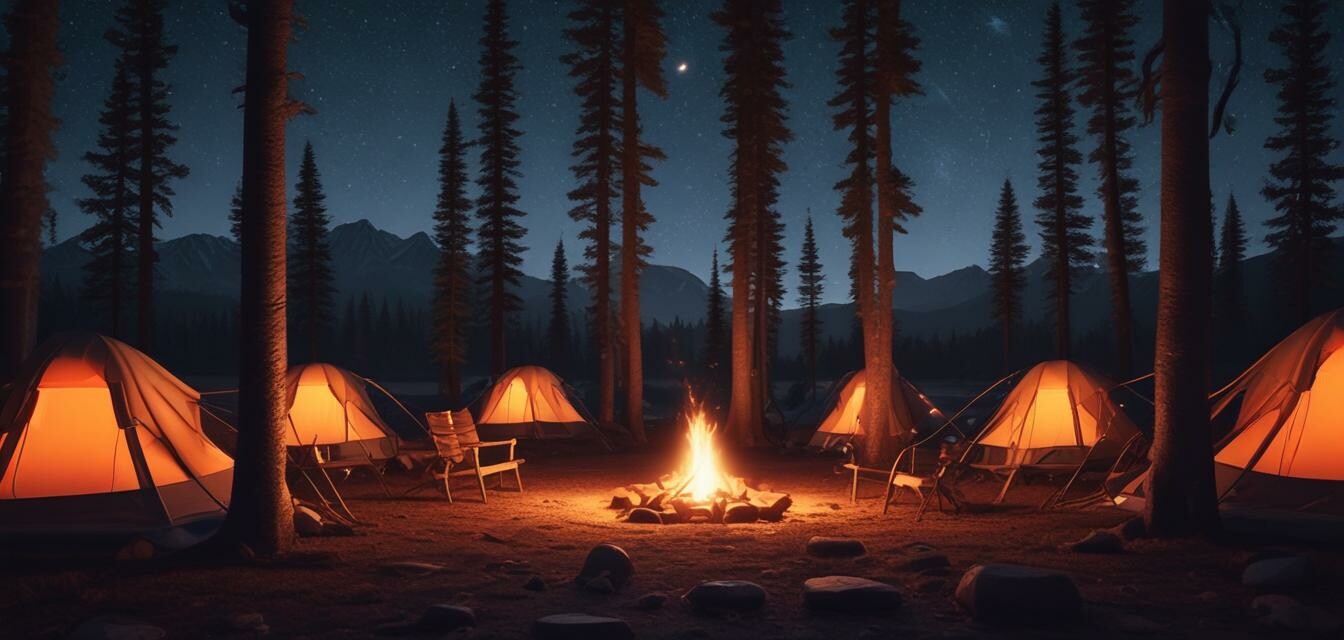
Nighttime Safety Tips for Beginners Camping
Key Takeaways
- Always secure your gear to avoid wildlife interference.
- Utilize proper lighting to navigate safely at night.
- Be aware of your surroundings and set up camp in a safe location.
- Keep emergency supplies easily accessible.
- Inform someone of your camping plans and location.
Camping can be a wonderfully exhilarating experience, especially under the stars. However, nighttime presents unique challenges that all beginners should prepare for. Using the right strategies can make a big difference in ensuring your safety and enjoyment. This guide breaks down essential nighttime safety tips to enhance your camping adventure.
1. Secure your gear
Wildlife is most active at night, and leaving food or gear unsecured can attract unwanted visitors. Here are a few tips for securing your belongings:
- Store all food in airtight containers.
- Hang food bags in trees, away from your campsite.
- Keep all your gear, especially valuables, in your tent or secured within your vehicle.
2. Use proper lighting
Good lighting can prevent accidents and help you navigate your campsite effectively. Consider the following:
- Bring headlamps, lanterns, or flashlights to illuminate your campsite.
- Set up lights around your cooking area for safety.
- Keep a backup light source in your tent for emergencies.
3. Be aware of your surroundings
Choosing the right location for your campsite is crucial. Keep these points in mind:
- Avoid camping near cliffs, as nighttime falls can obscure dangerous edges.
- Camp away from water sources to avoid flooding or attracting wildlife.
- Be conscious of natural hazards in the area, such as falling branches or loose rocks.
4. Keep your phone and emergency supplies accessible
While you may be out to disconnect, it's essential to have a way to communicate in case of an emergency. Here's how:
- Keep your mobile phone charged and in a safe, easily accessible place.
- Have a first-aid kit on hand with essentials for minor injuries.
- Create an emergency plan and share it with someone before you leave.
5. Inform someone of your plans
Always let a friend or family member know your camping plans. This could include:
- Your intended campsite location
- When you expect to return
- Any alternate plans in case of emergencies
Helpful tips for nighttime camping
- Practice setting up your tent before the trip.
- Use a camping checklist to ensure you have all necessary gear.
- Consider a camping hammock for a different perspective of nighttime views.
- Bring a portable charger for electronic devices.
- Familiarize yourself with wildlife in the area.
Conclusion
Camping at night can be a unique and enjoyable experience if you take the necessary precautions. By following these nighttime safety tips, beginner campers can ensure a secure and pleasant environment to enjoy the beauty of the outdoors. Whether you're exploring local parks or heading deep into the wilderness, prioritizing safety will enhance your adventure. For more tips on camping, visit our Camping Tips and Tricks section, or check out our other articles on Safety & Navigation and Sleeping Gear.